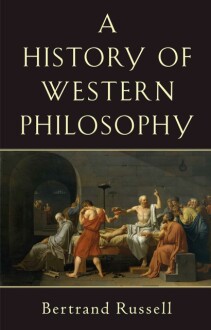Exploring the Depths: History of Western Philosophy Review
Key Takeaways
- Comprehensive overview of Western philosophical thought.
- Accessible for both beginners and seasoned philosophers.
- Available in Kindle format for easy reading on-the-go.
- Includes key figures and movements in Western philosophy.
Delve into the profound depths of human thought with the *History of Western Philosophy*, a comprehensive exploration of the ideas that have shaped our world. This Kindle edition provides a modern and accessible approach, making it perfect for both newcomers and seasoned philosophers alike.
Whether you're looking to enhance your understanding of ancient Greek and Roman philosophies or seeking a thoughtful companion for your reflective exercises, this book is an invaluable resource. Discover the intricate tapestry of philosophical schools of thought that continue to influence our lives today.
About History of Western Philosophy
The *History of Western Philosophy* is a meticulously crafted exploration of the philosophical traditions that have defined Western thought. This Kindle edition is not just a book; it’s a journey through time, examining the key figures, movements, and ideas that have shaped human understanding across centuries.
Design and Build Quality
As a Kindle edition, the *History of Western Philosophy* offers the convenience of digital reading without compromising on quality. The text is designed for clarity and ease of navigation, ensuring that readers can quickly access the information they seek. The aesthetic presentation is appealing, with well-structured chapters that enhance the reading experience.
Features and Performance
This book stands out with several key features that enhance its utility:
- Interactive Table of Contents: Easily navigate to specific sections or chapters.
- Highlighting and Note-taking: Make personal annotations and highlight important passages for future reference.
- Search Functionality: Quickly find specific topics or philosophers within the text.
Ease of Use
The Kindle format makes this book exceptionally user-friendly. It requires no installation and can be accessed on various devices, including smartphones, tablets, and e-readers. Additionally, the user manual provides clear instructions for those who are new to Kindle reading.
Use Cases
This book is ideal for a diverse audience:
- Students: Perfect for those enrolled in philosophy courses or related fields.
- Professionals: Great for anyone looking to deepen their understanding of philosophical concepts relevant to their field.
- Curious Minds: Accessible for those who simply wish to explore philosophical ideas for personal growth.
For further exploration of related topics, consider checking out our sections on Philosophical Texts or Spiritual Growth to enhance your understanding of the philosophical landscape.
Check Current PriceAdvantages and Disadvantages
Pros
- Comprehensive exploration of Western philosophy's key figures and movements.
- User-friendly Kindle format, allowing for easy reading on various devices.
- Interactive features, such as highlighting and note-taking, enhance the learning experience.
- Accessible for both beginners and those with advanced knowledge of philosophy.
- Well-structured chapters make navigation effortless.
Cons
- Limited to the scope of Western philosophy; may not cover Eastern philosophies.
- Kindle format requires a compatible device for access.
- Some readers may prefer a physical book over digital format.
Overall, the *History of Western Philosophy* 1st Edition offers an enriching journey through philosophical thought, making it a valuable resource for anyone looking to deepen their understanding in this field. The pros significantly outweigh the cons, making it a worthwhile addition to your reading list.
Embrace the Wisdom of the Ages
When considering the *History of Western Philosophy*, it's essential to take a moment to reflect on what to look for in similar products. Here are some tips for potential buyers:
Tips for Buyers
- Look for comprehensive coverage of philosophical concepts and figures.
- Check for user-friendly formats that suit your reading preferences, whether digital or physical.
- Consider the interactivity of the content, such as note-taking and search functionality.
- Ensure the book aligns with your interests, whether in Western thought or broader philosophical ideas.
- Avoid products that lack clear organization, as this can hinder your learning experience.
In summary, the *History of Western Philosophy* offers an extensive exploration of Western thought, presenting key figures and movements in an engaging and accessible manner. While it may focus solely on Western philosophy and be limited to Kindle format, the benefits far outweigh these drawbacks. Readers appreciate the interactive features that enhance engagement and facilitate a deeper understanding of the material.
For those passionate about philosophy, this book is a must-have resource. It caters to a wide range of readers, from students to professionals and curious minds alike. If you're ready to embark on a transformative journey through the ideas that have shaped our world, the *History of Western Philosophy* is the perfect companion. Explore this profound text, and allow it to enrich your understanding of the philosophical landscape.
 Check Current Price
Check Current Price
Your Questions Answered: History of Western Philosophy
-
Q: Is this book suitable for beginners in philosophy?
A: Yes, the book is designed to be accessible for both beginners and those with prior knowledge in philosophy.
-
Q: What are the key figures covered in the book?
A: The book includes discussions on numerous influential philosophers such as Socrates, Plato, and Aristotle, among others.
-
Q: Can I use this book on my smartphone?
A: Absolutely! The Kindle edition is compatible with various devices, including smartphones and tablets.
-
Q: Does the book offer any interactive features?
A: Yes, readers can highlight text and take notes, which enhances the learning experience.
-
Q: Is this book focused solely on Western philosophy?
A: Yes, it primarily explores the traditions and schools of thought within Western philosophy.













